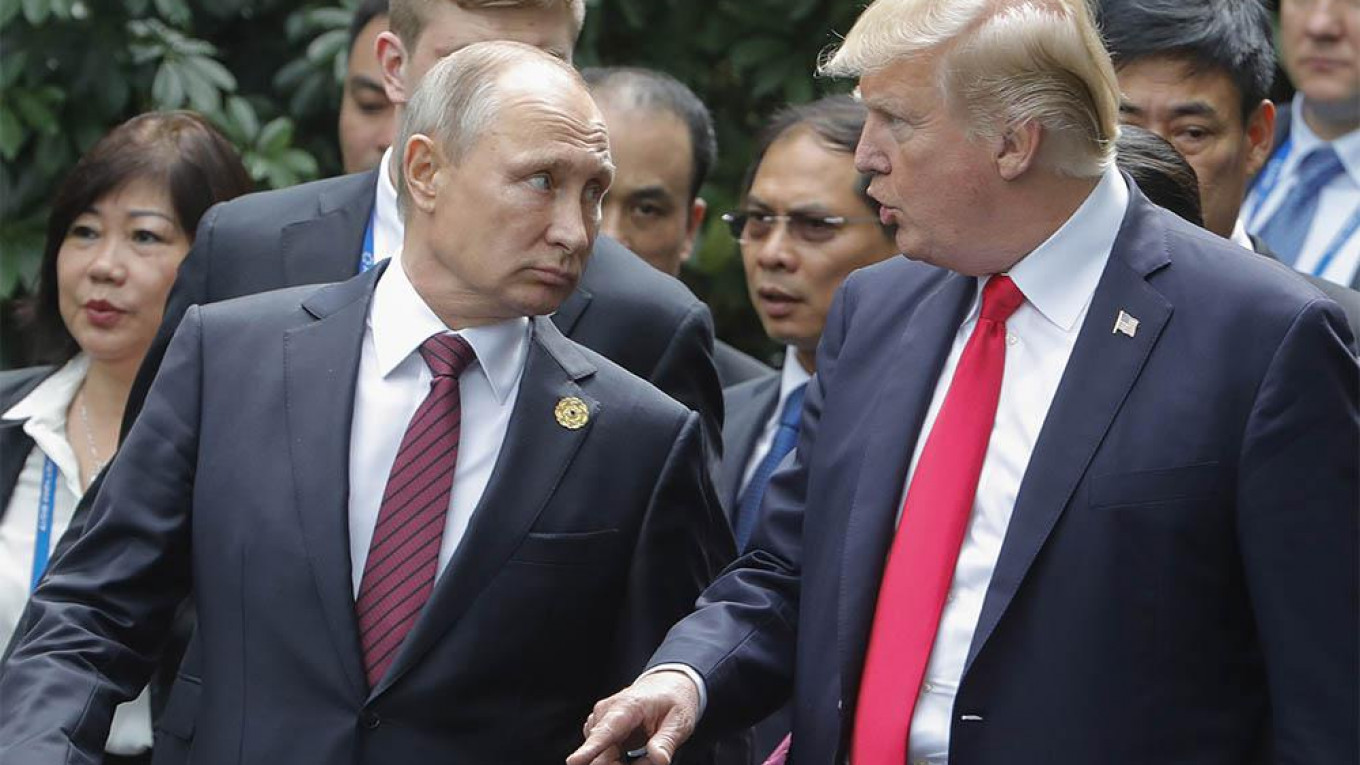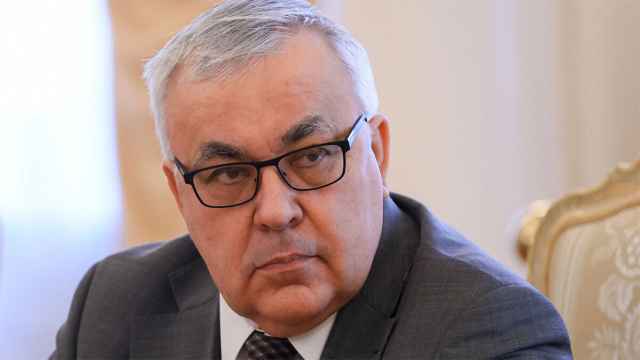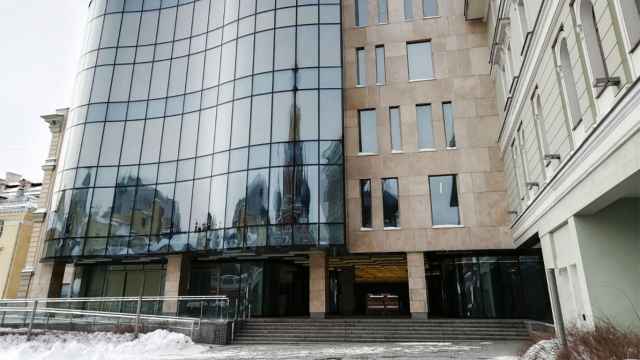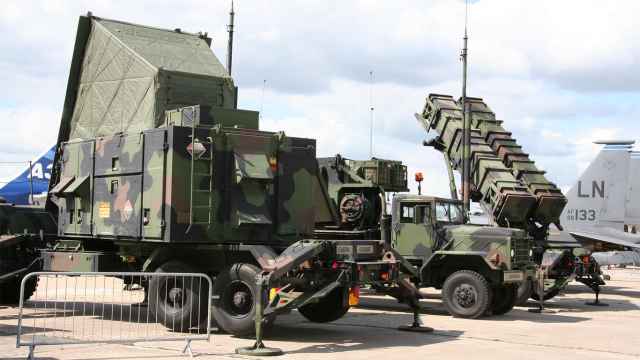I am an American expert on Russia.
It is my job to pay close attention to the ups and downs of the U.S.-Russia relationship, with the goal of helping U.S. policymakers, the press, and the wider public understand what is going on.
Under normal circumstances, such understanding would be useful for crafting better policy, and for more effectively managing both the challenges and the opportunities we face with Russia.
But these are anything but normal circumstances, and there is little point in saying anything about policy unless we first acknowledge why our circumstances are what they are.
The U.S. has never had a more dysfunctional or less effective relationship with post-Soviet Russia than it does today.
While it is more than fair to blame that dysfunction on Vladimir Putin — and on Donald Trump, Dmitry Medvedev, Barack Obama, and other heads of state past and present — I am afraid it now has far deeper causes than just state policies.
On the Russian side, the dysfunction builds on insecurities and grievances fanned by widely embraced conspiracy theories and historical narratives, all of which amount to branding the United States as public enemy number one.
It also draws on ordinary Russians’ tolerance of consolidated authoritarianism, from the Kremlin at the very top of the “power vertical” to corrupt and unchecked bullies at the bottom.
On the American side, the dysfunction is different but arguably just as deep.
It begins with a national mood that combines Cold War-style paranoia about the Russian bogeyman with a zero-sum, “us versus them” view of everything from taxes to public safety.
These disturbing trends find welcome resonance in a media, political and civic culture in which any sense that there are rules of decency has been long since trampled.
We should have no illusions.
Putin is a huge problem for the United States, just as he is for his neighbors and for his own people. He has crushed every bud of liberal democracy in Russia, has invaded Ukraine to seize its sovereign territory by force, at the cost of well over 10,000 lives, and he has backed the dictator Bashar Assad in Syria, with the blood of hundreds of thousands on his hands.
The evidence is quickly mounting of Russia’s interference in the 2016 U.S. elections and of its ongoing operations, apparently aimed at eroding democratic politics, social cohesion and security alliances from Europe to Latin America.
These are grave threats and they should be met with clarity, strength and resolve.
Yet not a single one of these threats posed by Russia has a military solution. We can hit the Russians as hard as we want, to “punish” them for bad behavior, but as long as they have the ability to hit back, they will do so, and the cycle will continue.
Such escalation carries unacceptable risks.
As Ronald Reagan said, a U.S.-Russian nuclear war cannot be won, and so must never be fought. That means that Americans will have to make difficult choices about which tools of our national power to use to manage relations with Russia.
The good news is we have an impressive arsenal, if we can bring it to bear intelligently.
Aside from our military, which is by any measure the world’s strongest, the U.S. economy is still the largest, and it far exceeds even a fast-growing China as a hub for investment and innovation for the entire world.
America’s greatest asset has been its incomparable soft power — the attractive force of our culture, our values, our readiness to lead and, when necessary, to sacrifice.
The U.S. has never had a more dysfunctional relationship with post-Soviet Russia than it does today
These strengths can see us through to victory over the Russian threat — and any other — in the long term.
But in the meantime, our vital national interests, including our security, prosperity and our very identity, are at risk from the dysfunction gripping our national life. This problem is far bigger than U.S.-Russia relations, but it comes to a head in the contest between Washington and Moscow.
Consider the treatment of Russia today in much of our national debate.
It is somehow both a great menace — apparently capable of stealing all our secrets, manipulating our leaders, brainwashing our electorate — and yet is also the butt of jokes, not deserving of even the grudging respect a wise warrior accords his adversary.
In the rush to unearth and expunge nefarious Russian influence in our country, Americans have embraced a logic of conspiracy theories and strictly zero-sum thinking that is, if anything, familiar to Russians from decades of Soviet and post-Soviet life.
In this climate, efforts to understand and explain Russian conduct as something more than earthly expressions of evil are condemned as victories for Russian propaganda and calls for diplomatic engagement are dismissed as hopelessly naïve.
When it comes to Russia, there simply is no longer room for the pragmatism that has been at the very core of our American worldview, and that ensured our survival and success despite half a century of Cold War.
This is not who we are as Americans. This is not how the good guys behave. And, most importantly, this cannot end well.
Matthew Rojansky is Director of the Kennan Institute at the Woodrow Wilson Center in Washington, D.C.
The views and opinions expressed in opinion pieces do not necessarily reflect the position of The Moscow Times.
A Message from The Moscow Times:
Dear readers,
We are facing unprecedented challenges. Russia's Prosecutor General's Office has designated The Moscow Times as an "undesirable" organization, criminalizing our work and putting our staff at risk of prosecution. This follows our earlier unjust labeling as a "foreign agent."
These actions are direct attempts to silence independent journalism in Russia. The authorities claim our work "discredits the decisions of the Russian leadership." We see things differently: we strive to provide accurate, unbiased reporting on Russia.
We, the journalists of The Moscow Times, refuse to be silenced. But to continue our work, we need your help.
Your support, no matter how small, makes a world of difference. If you can, please support us monthly starting from just $2. It's quick to set up, and every contribution makes a significant impact.
By supporting The Moscow Times, you're defending open, independent journalism in the face of repression. Thank you for standing with us.
Remind me later.








